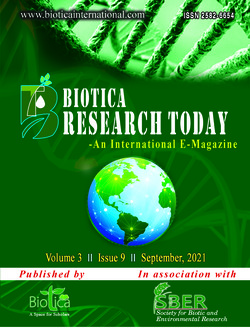
Sugar Mill Waste Management through Composting
R. Jayashree*
Dept. of Soils and Environment, Agricultural College and Research Institute, Tamil Nadu Agricultural University, Madurai, Tamil Nadu (625 104), India
R. Murugaragavan
Dept. of Soils and Environment, Agricultural College and Research Institute, Tamil Nadu Agricultural University, Madurai, Tamil Nadu (625 104), India
DOI: NIL
Keywords: Bagasse, Press mud, Solid waste, Vermicomposting
Abstract
In India approximately there are 705 registered sugar factories with annual production capacity of 180 lakh metric tonnes. India is the second largest producer of world’s sugar after Brazil and largest consumer of the world, when Indian sugar industry has produced 100 lakh tonnes of press mud and 333 lakh tonnes of bagasses with 16-76 m3 of waste water. Environmental issues in sugar manufacturing industries primarily, molasses, wastewater, solid waste and its by-products. About 0.30 ton of bagasse waste is obtained from one ton of sugarcane and in press mud, 3% is obtained for the total quantity of cane crushed. The waste materials can be recycled through composting and vermicomposting process by the utilization of spent wash from the molasses and it is rich in all nutrients including micronutrients.
Downloads
not found
Reference
Behera, K.K., Alam, A., Vats, S., Sharma, H.P., Sharma, V., 2011. Organic Farming History and Techniques. In: Agroecology and Strategies for Climate Change, (Ed.) Lichtfouse E.. Vol. 8. Springer Science + Business Media B.V., USA, pp. 287-328.
Insam, H., de Bertoldi, M., 2007. Microbiology of the composting process. In: Waste Manage. Series, Compos. Sci. Technol, (Eds.) LF Diaz, M de Bertoldi, W Bidlingmaier and W Stentiford, Vol. 8. Elsevier Science + Business Media B.V., USA, pp. 25-48.
Sofia, P.K., Prasad, R., Vijay, V.K., 2006. Organic farming Tradition reinvented. Indian Journal of Traditional Knowledge 5(1), 139-142.
